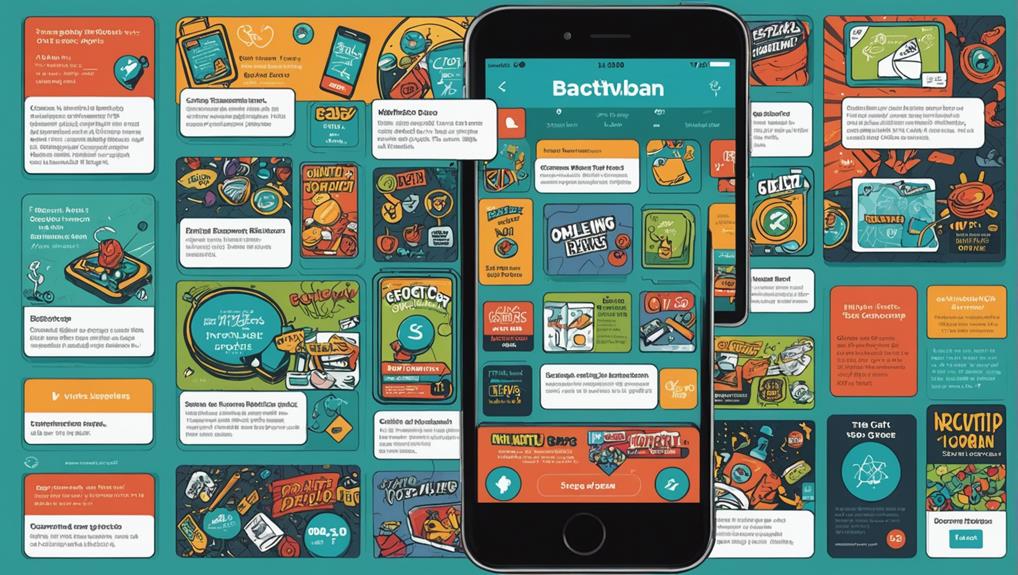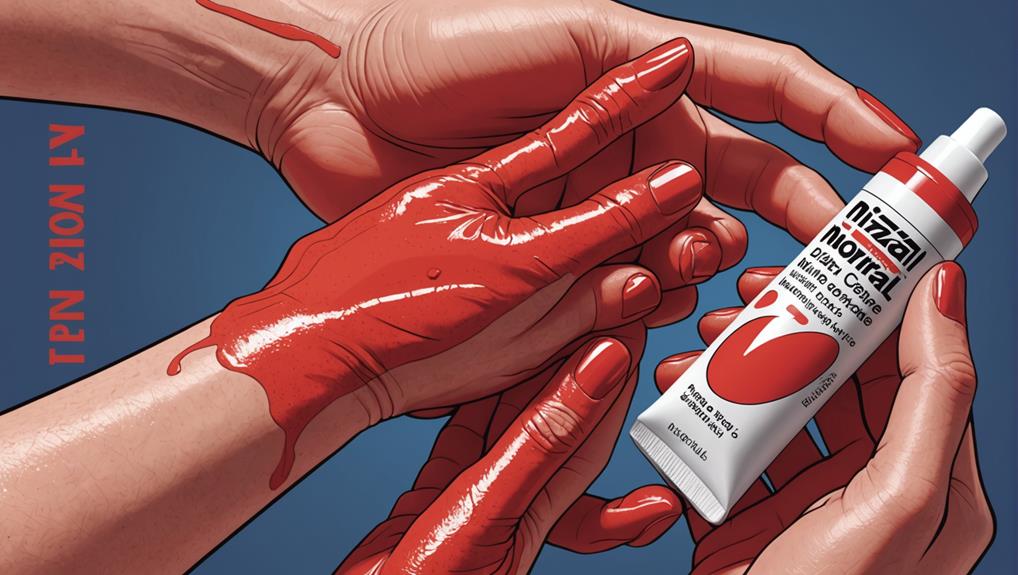Revealing the hidden risks of Benadryl highlights important safety measures. When giving Benadryl to children, prioritizing safety is essential. Consult a healthcare provider for precise dosages; typically, a 32 lb child may need around 12.5 mg of the medication. Keep in mind the risks of overdosing, such as Central Nervous System Depression, cardiac effects, respiratory distress, and even fatal outcomes in severe cases. Watch out for side effects like dizziness, dry mouth, and blurred vision, and note potential interactions with other medications. Stay informed to ensure safe usage for optimal well-being.
Key Takeaways
- Benadryl can cause central nervous system depression, cardiac effects, respiratory distress, gastrointestinal issues, and potentially fatal outcomes.
- Watch for side effects like dizziness, dry mouth, and blurred vision; seek immediate help for severe reactions.
- Interactions with alcohol, antidepressants, and sedatives can intensify side effects; consult healthcare providers for guidance.
- Long-term Benadryl use may lead to decreased effectiveness, increased side effects, and a need for alternative treatments.
- Consult healthcare providers for precise dosages, use measuring devices for accuracy, and avoid giving to children under 2 without doctor's approval.
Benadryl Use in Children

When considering the use of Benadryl in children, it is important to prioritize safety and adhere to recommended dosages. For a 32 lb child, the typical dosage is around 12.5 mg, but consulting a healthcare provider for precise instructions is essential.
Using a measuring device ensures accuracy, and it's vital never to exceed the recommended amount without professional guidance. Benadryl can induce drowsiness and sedation, hence it's advisable to avoid giving it to children under 2 years old unless directed by a doctor.
Understanding the potential side effects, interactions, and safety measures when using Benadryl in pediatric care is fundamental for ensuring the well-being of the child.
Risks of Benadryl Overdose

Considering the potential dangers associated with improper use of Benadryl, understanding the risks of Benadryl overdose is essential in ensuring safe medication practices.
An overdose of Benadryl can lead to severe complications, including:
- Central Nervous System Depression: Excessive Benadryl can cause sedation, confusion, blurred vision, and even seizures.
- Cardiac Effects: Overdosing on Benadryl may result in irregular heart rhythms, palpitations, and increased blood pressure.
- Respiratory Distress: High doses can depress the respiratory system, leading to breathing difficulties.
- Gastrointestinal Issues: Overdose may cause nausea, vomiting, and abdominal pain.
- Death: In extreme cases, Benadryl overdose can be fatal.
It is essential to adhere to recommended dosages and seek immediate medical attention in case of overdose symptoms.
Side Effects to Watch For

Monitoring for potential side effects is essential when using Benadryl to guarantee the safety and well-being of individuals. While Benadryl can be effective in managing allergies, it is important to be aware of possible adverse reactions.
Some side effects to watch for include:
- Dizziness
- Dry mouth
- Blurred vision
These common side effects are typically mild but should be monitored closely. However, serious side effects such as difficulty breathing or chest tightness require immediate medical attention.
It is essential to report any adverse reactions to a healthcare provider promptly. By staying vigilant and informed about potential side effects, individuals can use Benadryl safely and effectively.
Interactions With Other Medications

Understanding potential interactions between Benadryl and other medications is vital for guaranteeing safe and effective use of this over-the-counter allergy medication. Benadryl can interact with various medications, leading to adverse effects or reduced efficacy. It is essential to inform healthcare providers about all medications being taken, including over-the-counter products, to avoid harmful interactions.
Some common interactions to be aware of include:
- Increased drowsiness when combining Benadryl with alcohol.
- Interactions with antidepressants and sedatives, potentially intensifying side effects.
- Grapefruit juice affecting the absorption of Benadryl.
To ensure safe usage, always consult with a pharmacist or doctor about potential interactions before starting Benadryl or any new medication regimen.
Long-Term Effects of Benadryl

Long-term use of Benadryl may result in the development of tolerance towards its effects, necessitating careful monitoring and potential adjustments in dosage. It's important to be aware of the following aspects:
- Gradual decrease in effectiveness over time.
- Increased risk of side effects.
- Potential need for alternative treatment options.
Monitoring your body's response to Benadryl is essential for maintaining its efficacy and safety. Consulting with a healthcare provider can help navigate any challenges that may arise from long-term usage.
Frequently Asked Questions
Can Benadryl Be Used to Treat Coughs or Colds in Children?
Benadryl is not recommended to treat coughs or colds in children. While it may alleviate symptoms like sneezing and runny nose due to allergies, its sedative effects and potential side effects make it unsuitable for cough or cold relief in children.
How Soon After Taking Benadryl Can a Child Engage in Physical Activities?
After taking Benadryl, a child should wait until the sedative effects wear off before engaging in physical activities. Safety is paramount. How long this takes can vary, but it's essential to prioritize caution and avoid potential risks.
Are There Any Specific Foods to Avoid While Taking Benadryl?
While taking Benadryl, it is advisable to avoid consuming grapefruit juice due to its potential to impact the absorption of the medication. Discuss any dietary concerns or interactions with a healthcare provider for personalized guidance.
Can Benadryl Interact With Herbal Supplements or Vitamins?
Exploring potential interactions, it's crucial to take into account how Benadryl may interact with herbal supplements or vitamins. Communicate openly with healthcare providers about all substances consumed to guarantee safe and effective use of medications.
Is It Safe for a Child to Take Benadryl Before a Vaccination Appointment?
It is important to consult with a healthcare provider before giving a child Benadryl before a vaccination appointment. Consider the child's age, weight, and any potential interactions with other medications. Always follow dosing instructions carefully.
Conclusion
As we journey through the intricate landscape of Benadryl's use and risks, let us remember that knowledge is our compass in traversing the complexities of medication.
Just as a skilled sailor charts a course through stormy seas, armed with wisdom and caution, so too can we navigate the potential dangers of Benadryl with awareness and vigilance.
Stay informed, stay alert, and may your journey towards safe and effective medication usage be guided by the light of understanding.









